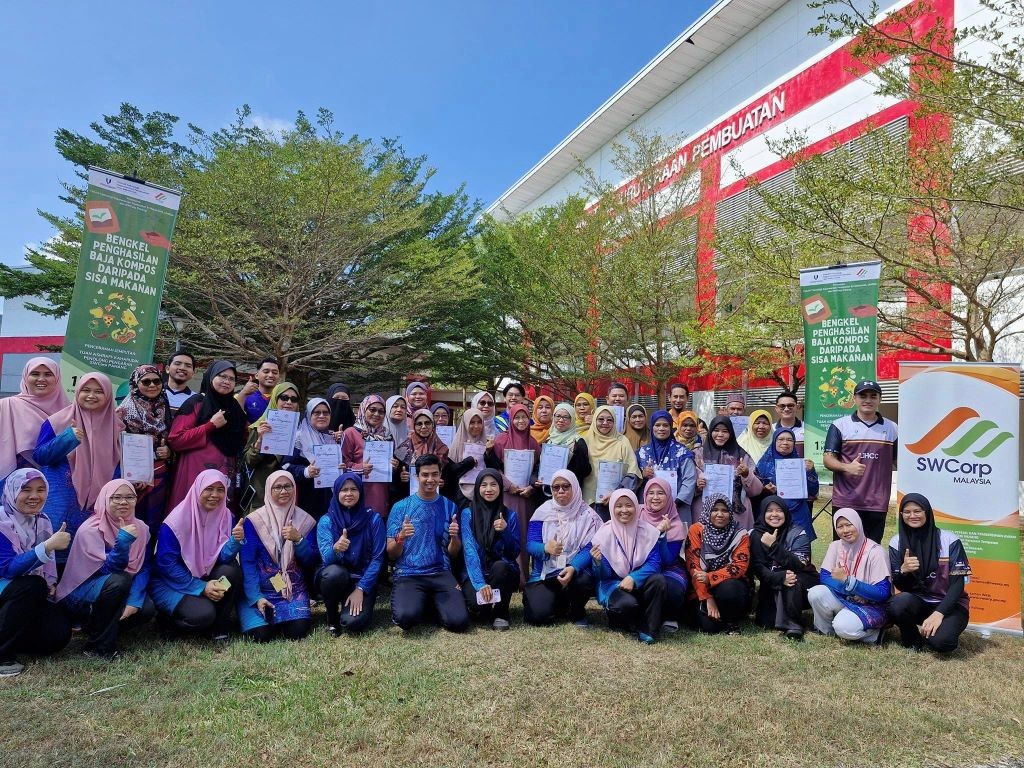Empowering the Community with Takakura Composting

The workshop introduced participants to the Takakura Method, a simple, low-cost, and community-friendly approach to composting food waste. This method makes use of locally available materials such as rice husks, black soil, and fermentation starters (enzymes made from brown sugar, tempeh, and plain yoghurt) to accelerate the decomposition of organic waste.
A total of 30 residents from surrounding villages in Pekan took part in this hands-on training. They learned how to prepare the decomposing medium, manage household food waste efficiently, and produce organic fertiliser for home or small-scale agricultural use. Each group was provided with a composting kit, enabling them to immediately apply the knowledge in their own households.
Promoting 3R Awareness and Sustainable Practices
In addition to composting skills, participants were introduced to the broader concept of 3R (Reduce, Reuse, Recycle) and the importance of reducing dependence on landfills. By turning food scraps into fertiliser, households can save costs, reduce reliance on chemical fertilisers, and contribute to a healthier environment.
Strengthening UMPSA’s Role in Knowledge Transfer
This initiative highlights UMPSA’s role as a knowledge transfer hub, where university expertise is shared with the community to encourage sustainable lifestyles. The collaboration with SWCorp Pahang further demonstrates how academic institutions and government agencies can work hand-in-hand to tackle waste management challenges.
Looking Ahead
Moving forward, UMPSA aims to expand such initiatives to a larger number of communities, monitor the long-term adoption of composting practices, and measure the tangible impacts—such as reduction in household food waste sent to landfills and the amount of compost produced and used. These outcomes not only strengthen community resilience but also contribute directly to UMPSA’s commitment to the Sustainable Development Goals (SDGs).

